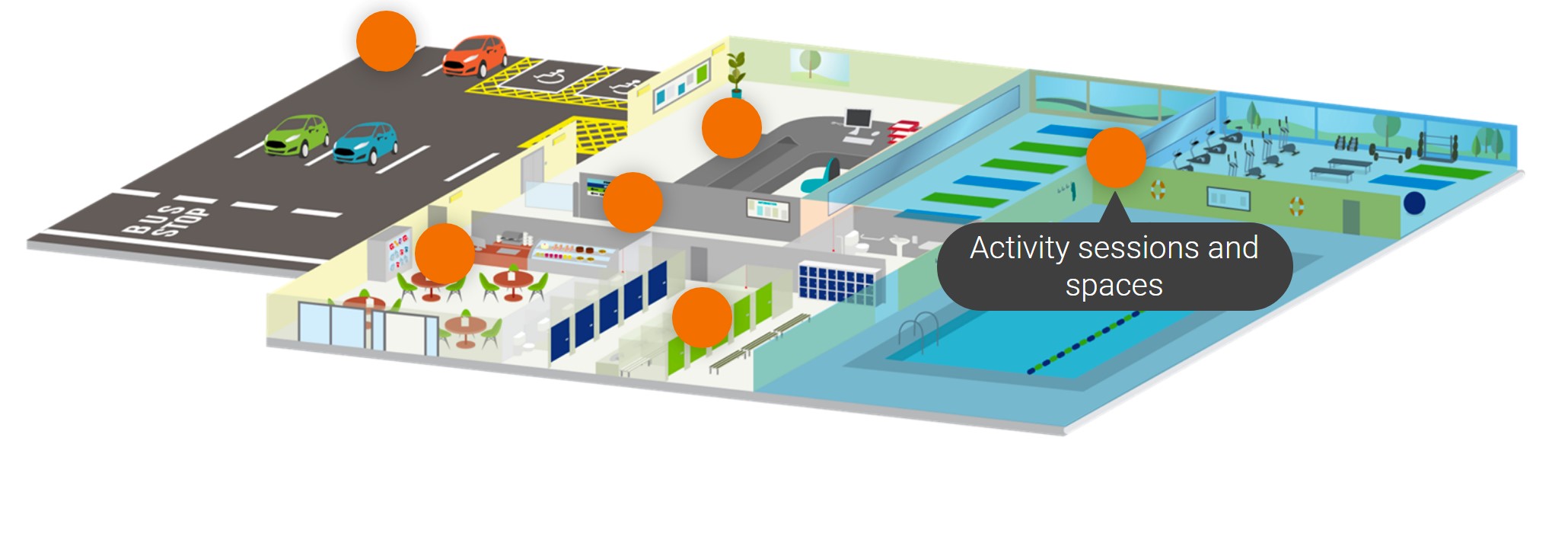Delivering an excellent service for disabled customers eLearning module
Delivering an excellent service for disabled customers is an eLearning course that raises awareness and provides practical advice on providing excellent customer service for disabled customers at sport and leisure centres.

Disabled people account for nearly one in four of our total population, around 16.1 million individuals in the UK. Research shows that they, along with people with long-term health conditions, are twice as likely to be inactive compared to non-disabled people.
Many disabled people report encountering physical, logistical, or psychological barriers that make participation more difficult. This highlights the importance of ensuring your processes are fully inclusive and accessible.
Staff training and workforce development are key to creating an inclusive facility. People shape the experience, and if visitors don’t feel welcome, many won’t make it past the front door. Often, this reflects an organisational culture that isn’t fully inclusive or staff who lack confidence in engaging with disabled people.
Activity providers who have successfully tackled these barriers can offer truly inclusive environments and more engaging and enjoyable experiences for everyone.

Course details
This course can increase workforce confidence and knowledge, especially for people who work in leisure and customer-facing roles, to engage with and support disabled people in sports and activities.
The course covers six topics:
- Inclusive customer service.
- Perceptions of disability.
- Legislation and reasonable adjustments.
- Effective communication.
- Good practice for serving people with specific impairments and health conditions.
- Creating a welcoming and accessible environment.
No prior knowledge or experience is required, and you can complete the course at your own pace.
Learning outcomes
Staff training can support your organisation in reaping the rewards of satisfied disabled customers and making active lives possible. Completing the course can help to ensure everyone plays their part in creating a welcoming environment for disabled people. Here’s why you should take part:
- Thought provoking tips and advice to go away and implement
- Addresses common misconceptions about disability
- Interactive online training
- No prior knowledge or experience required
- Completed at own pace
- Cost effective delivery method
Who is this course suitable for?
Although the training is tailored for leisure centre staff, any customer-facing businesses and individuals may benefit from this course. This includes:
- Front of house leisure centre staff
- Catering and support teams
- Fitness assistants
- Membership advisors
- Activity or class leaders
- Centre managers
Duration
60-90 mins
Course completion
Learners receive 1 CIMSPA CPD point upon completion.
Cost
The cost is £20 per person excl VAT. (VAT will be added to the listed price at checkout.)
Discounts are available on bulk bookings.
-
- Buy 50 or more for £17 per person excl VAT.
- Buy 100 or more for £14 per person excl VAT.